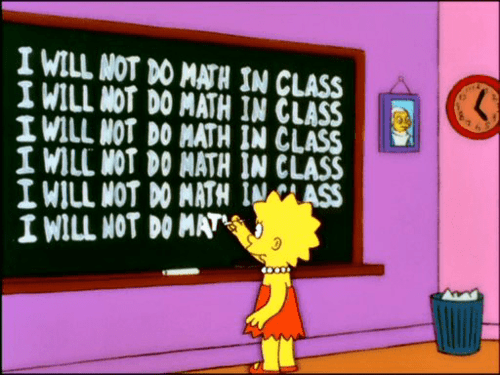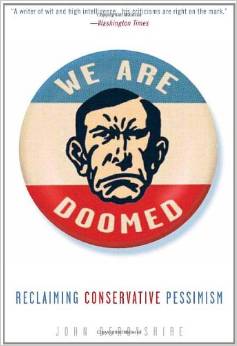
Is There An Opening For Education Realism?
09/29/2015
Our society has become unmoored from reality in all sorts of areas, but perhaps nowhere more so than in education.
When I wrote six years ago that “education is a vast sea of lies, waste, corruption, crackpot theorizing, and careerist logrolling,” I wasn’t telling the half of it. [We Are Doomed, p.132.]
(Although to be fair, there are some occasional positives for realists, too: schadenfreude, for example.)
One of the best guides through the lunatic asylum has been the blogger Education Realist, who teaches high school math.
Educationwise, I can’t get beyond mockery. There are just so many tempting targets. Education Realist, on the other hand, has serious constructive suggestions.
In hopes that one of the 2016 Presidential candidates might take notice, she has recently put together a series of posts out lining a, yes, realistic program of educational reform.
The series begins with a primer laying down five axioms that the proposals are built on.
- Some children cannot learn to the desired standard in an acceptable timeframe or, in the case of high school, in any timeframe.
- The more rigorous the standard, the greater number of students who will be incapable of learning to that standard.
- As a result of the first two immutable facts, schools can’t require an unbendable promotion standard.
- By high school, the range of student understanding in any one classroom is beyond what most outsiders can possibly conceive of.
- Education case history suggests that courts care neither about reality or costs.
The proposals then follow in five separate posts:
- Ban College-Level Remediation.
- Stop Kneecapping High Schools.
- Repeal the Individuals with Disabilities Education Act (IDEA).
- Restrict K-12 Education to Citizens Only.
- End English Language Learner Mandates.
I have long been fascinated by Plyler vs. Doe, in which the Supreme Court held that states cannot deny school funding for educating illegal immigrants. I re-read it periodically to try and grasp its legal reasoning, as opposed to reacting purely as a citizen wondering what the hell the justices were thinking.
There’s a final wrap-up post with some good pro-Trump, anti-Obama rhetoric, and an art-of-the-possible approach to political realism:
I support all five proposals in the main, particularly the first two. But my agenda here is not to persuade everyone as to their worthiness, but rather illustrate how weak educational discourse is in this country. All proposals are debatable. Negotiable. We could find middle ground. The problem is, no one can talk about them because the proposals are all unspeakable.
Who knows? In the Age of Trump, perhaps the formerly-unspeakable is now speakable.

